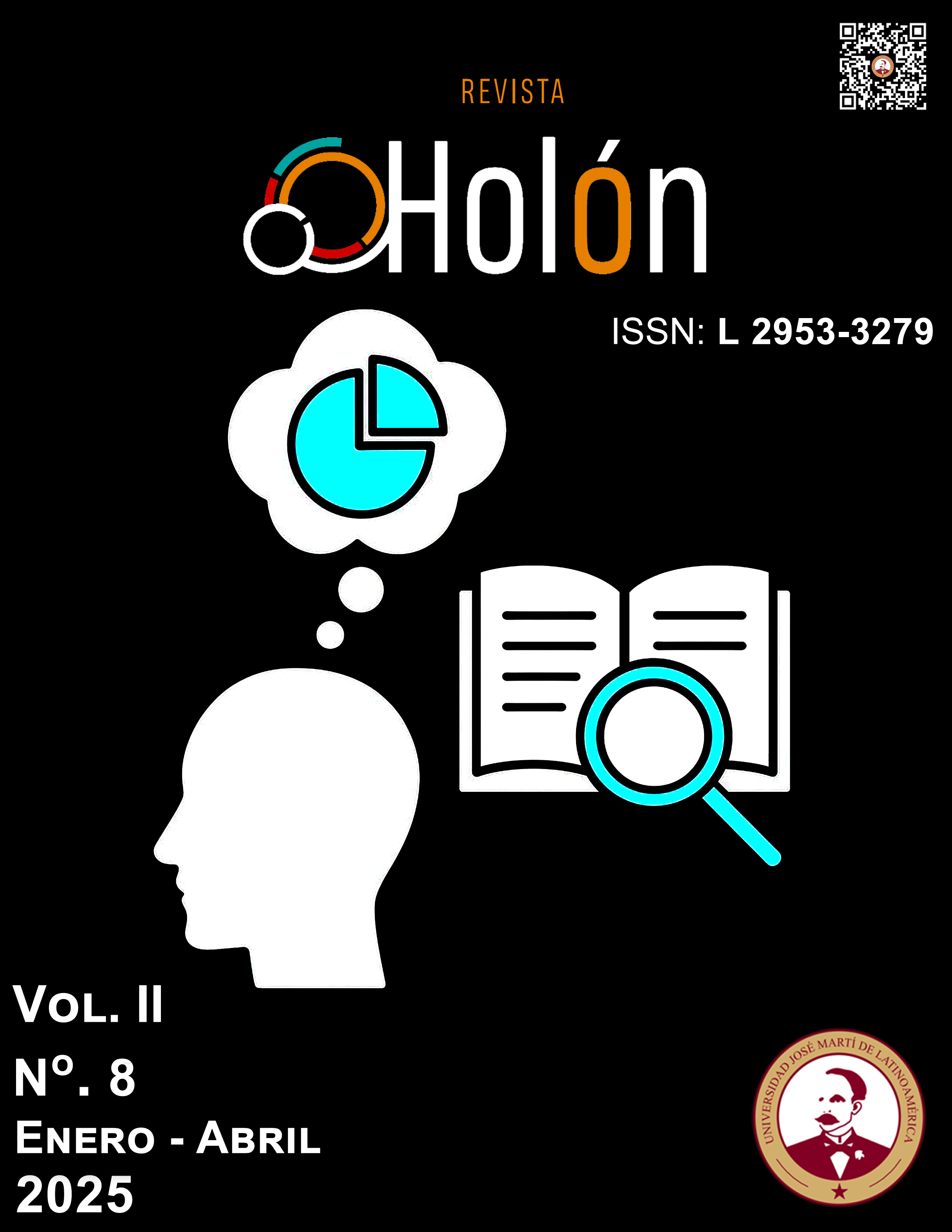

Copyright (c) 2025 Revista Holón

This work is licensed under a Creative Commons Attribution-NonCommercial-ShareAlike 4.0 International License.
The article aims to reflect on the importance of the researcher's complex thinking and practice in a scientific research process; allowing the professional role as a teacher/researcher to be undertaken from an interdisciplinary, transdisciplinary and holistic perspective. Education is identified as an irreplaceable area of socialization of science, and constitutes a fundamental axis in the path to transform the professional role as a teacher/researcher. The main contribution is the proposal to include in postgraduate studies the central idea that, although the scientific method offers all the opportunities to overcome the traditional reductionist logic, the integration with complex thinking contributes to research processes with a more integrative and multidimensional approach. Through an extensive documentary review, the interpretive method allows us to affirm that the link between scientific thinking and complex thinking is not only a theoretical issue, but also a question of paradigmatic renewal of the researcher. This necessarily starts from the willingness to change, seen as an opportunity for the training of students, especially at the postgraduate level, and is essentially expressed in their achieving the development of processes, skills and knowledge appropriate for the analysis and contextualization of the problems that are identified as needs in the field of knowledge and praxis.